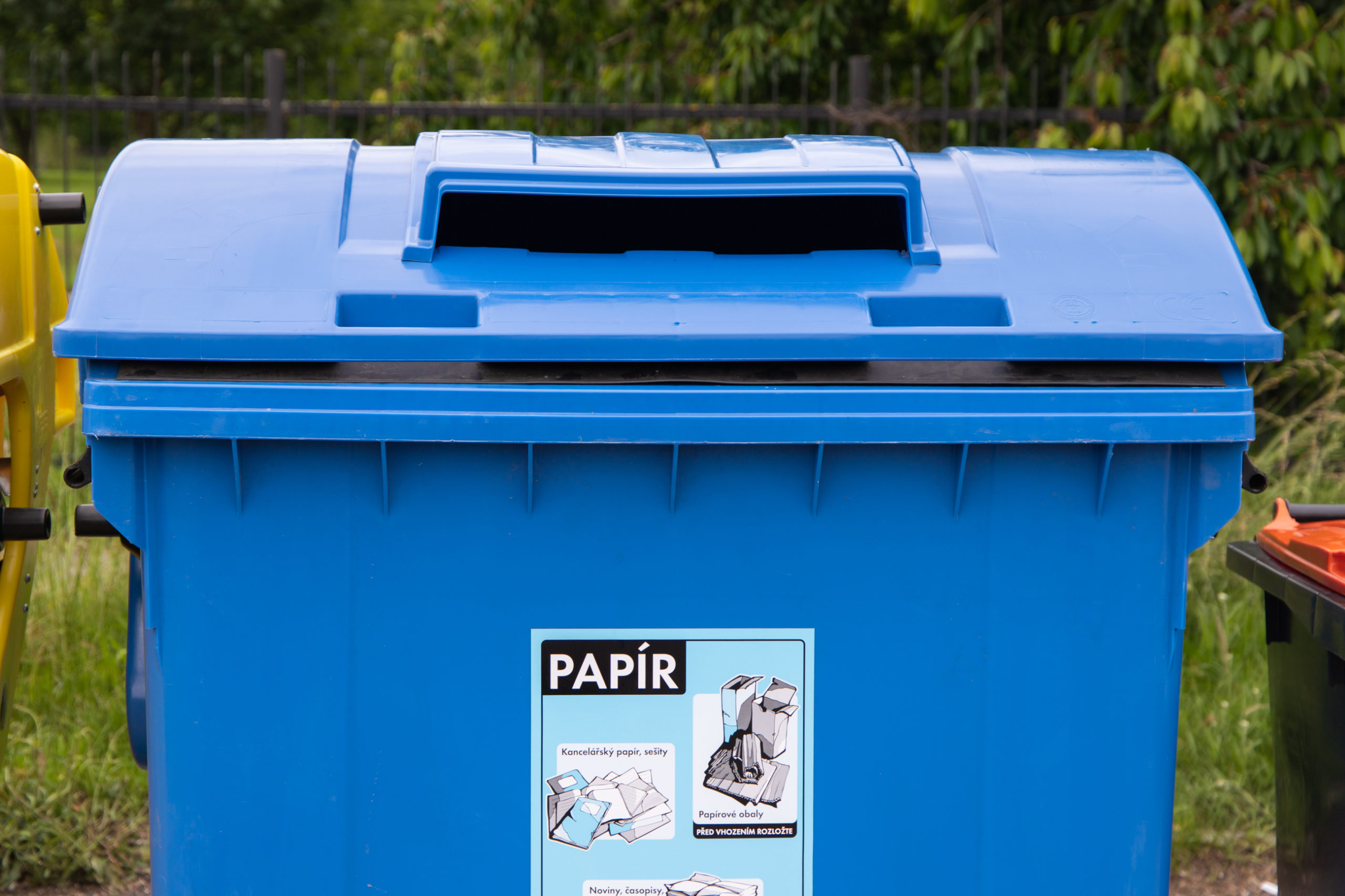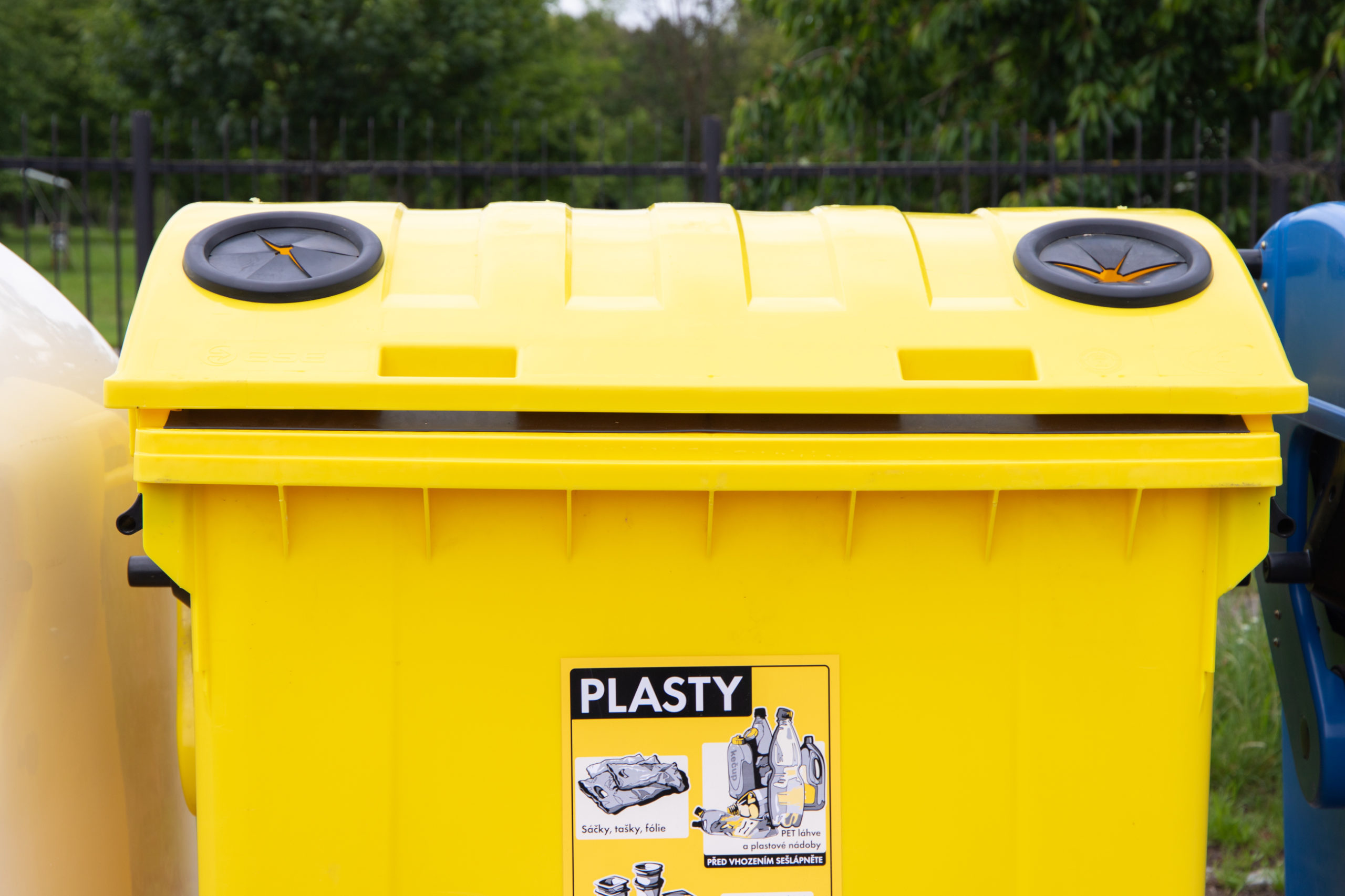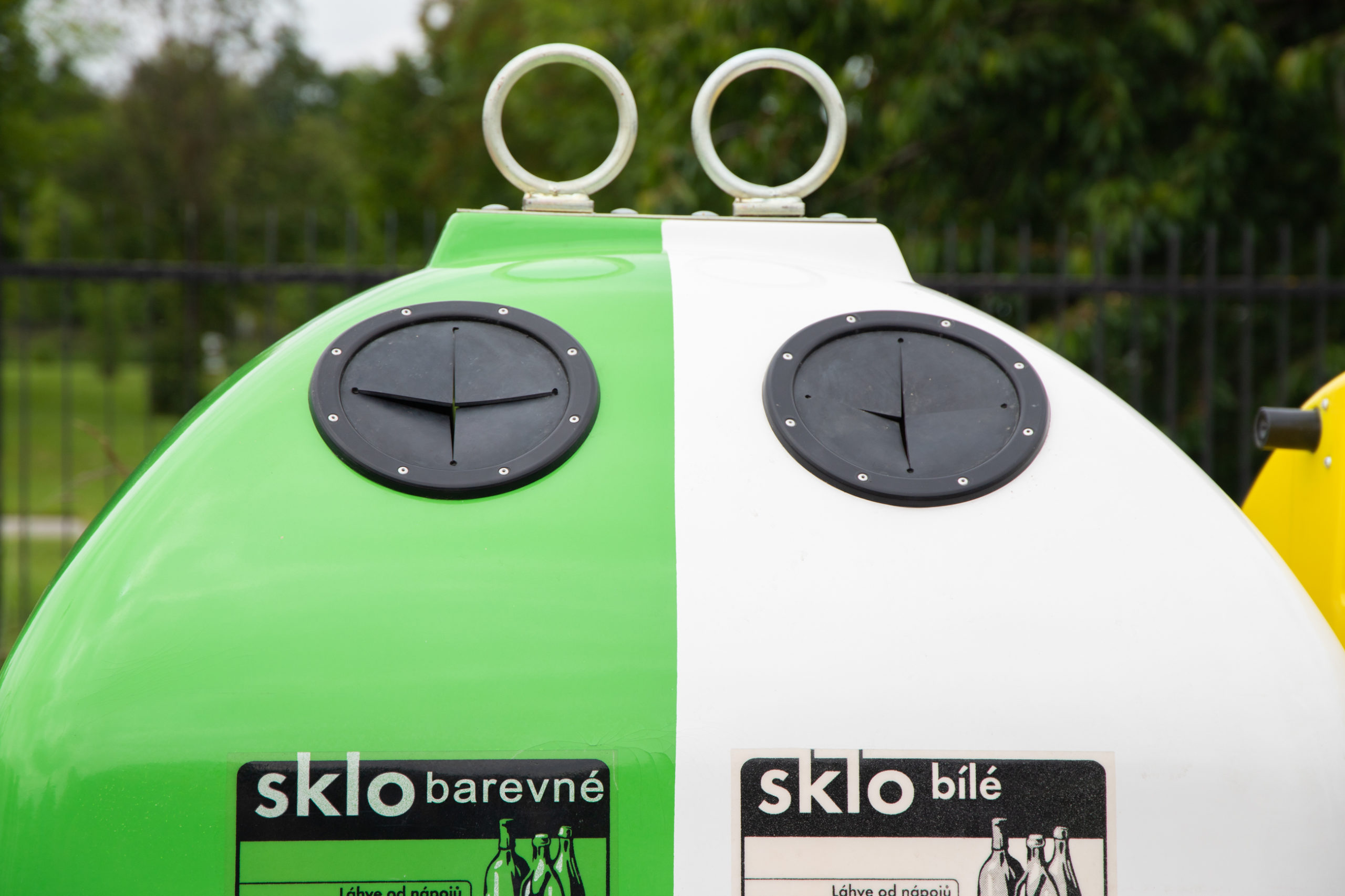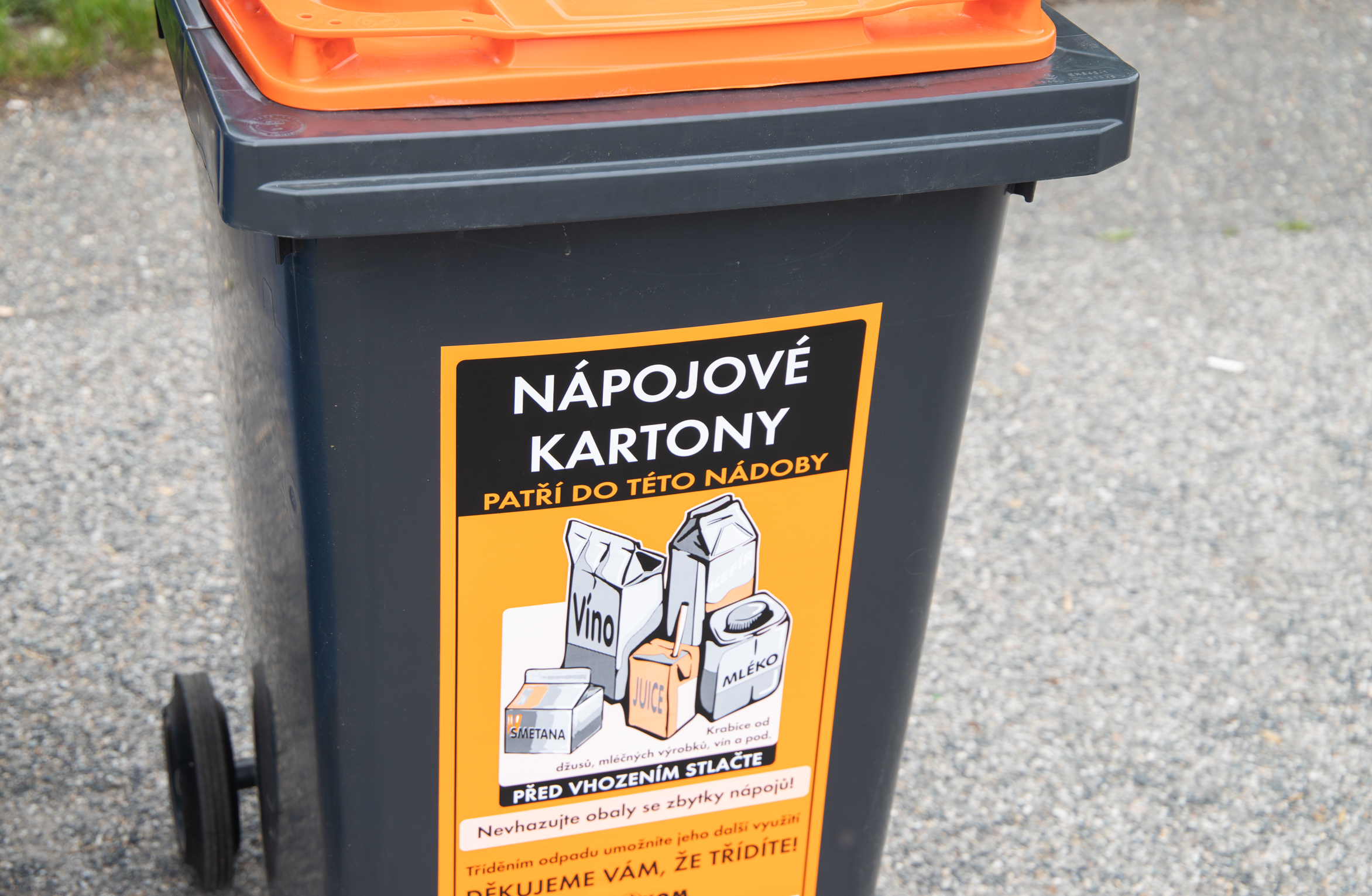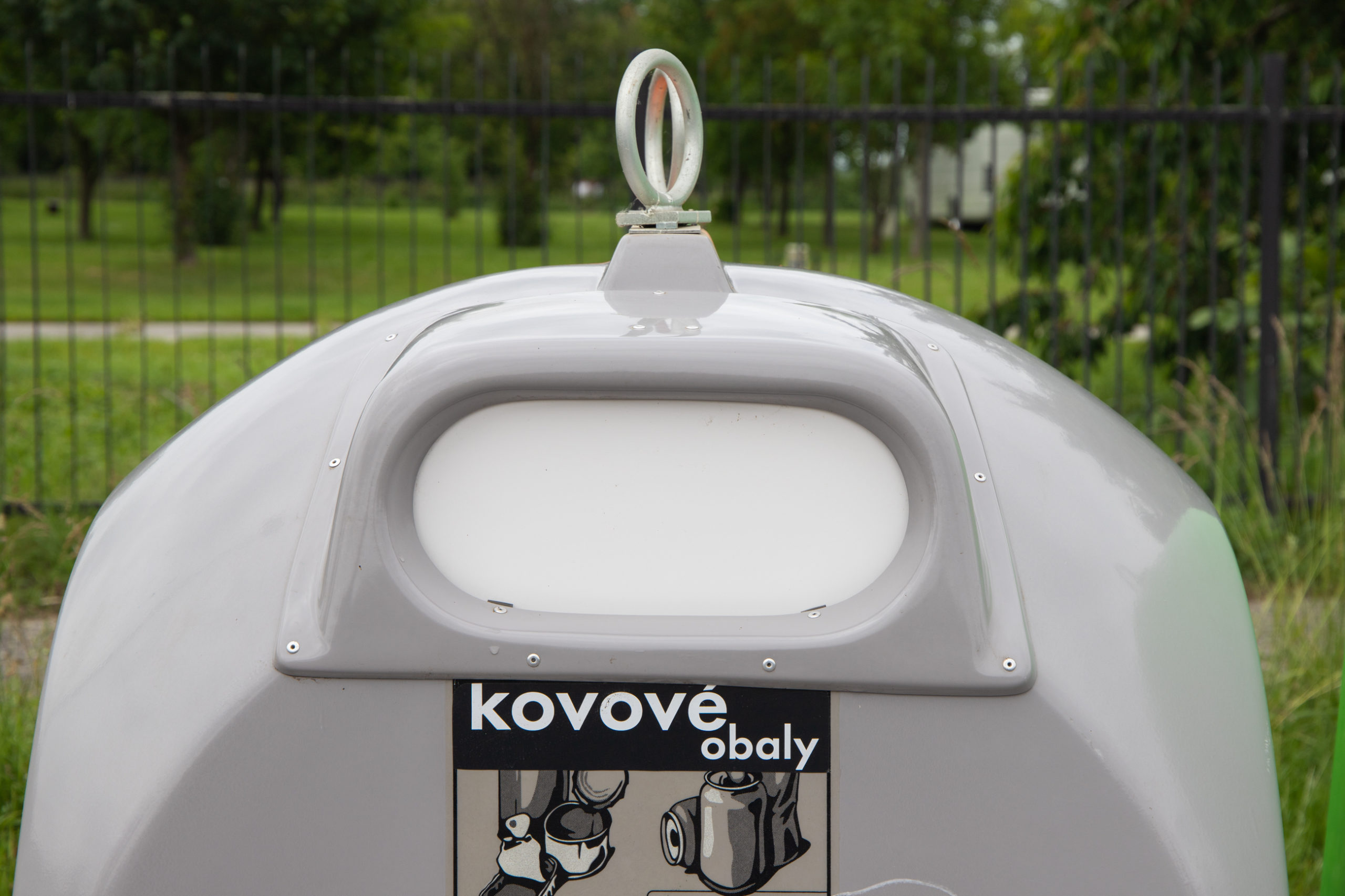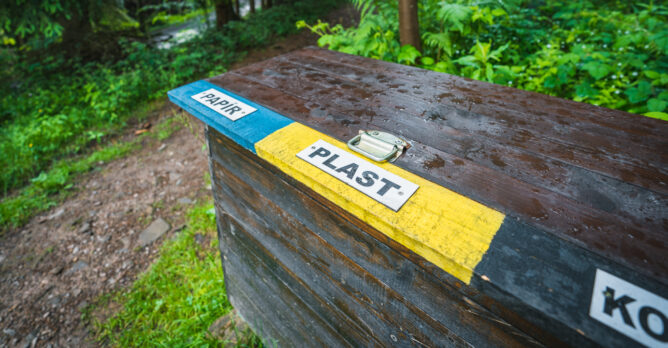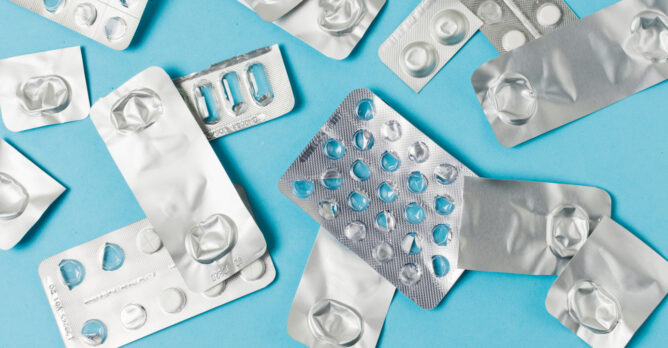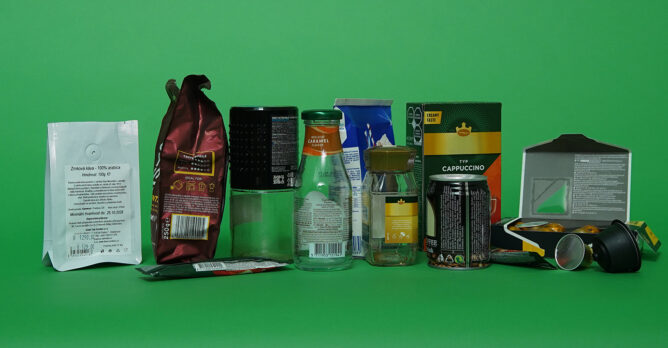A guide to sorting and recycling of waste in the Czech Republic
73% of people in the Czech Republic sort waste. At the moment, hundreds of thousands of foreigners have been staying or have found a new home in the country. Sorting waste is different in different countries, so here is some information on how to sort waste in the Czech Republic.
The article in Samosebou.cz will tell you where and how to recycle paper, plastic, glass, metals and other types of waste.
Sorting of waste in the Czech Republic – what belongs where
In the Czech Republic, there are several ways to sort waste at home. In general it can be said that waste is sorted based on the type of material.
Colourful recycling bins are available at so-called sorting hubs. Recycling bins in different colours according to which materials belong in them are placed there.
This is the most common way to recycle waste in all residential areas.
Another possibility is so-called individual collection, where people sort their household waste into bins or special colourful bags provided to them ad hoc.
This is a common way to recycle waste in residential areas with single-family homes.
Yet another possibility is to take waste to:
- Recycling centres: in this case it is best to ask for more information at your local waste collection company or at the local administrative centre;
- Junk yards: sorted waste can be sold there for money based on the current price list;
- Take-back points: these are intended for disposal of certain types of waste (old electronic appliances in shops, tyres in garages, etc.);
- Large containers: on certain days and times, local authorities organize collection of specific types of waste (the best- known are probably the so-called Iron Sundays, when sorted waste made of iron is collected).
Advice on how to sort waste – stickers on bins and recycling symbols on packaging
A key principle in correct waste separation is to follow the advice on stickers placed on recycling bins.
Due to various factors, waste sorting can differ in different towns/villages, so you should always follow the advice on stickers placed on bins where you put sorted waste.
Another important source of information concerning correct waste sorting is the information on product packaging, the so-called recycling codes. They help us identify the materials from which the packaging is made and subsequently where it should be sorted.
Where and how to sort paper, plastic, glass, metal and cartons in the Czech Republic?
Waste is sorted according to the material from which it is made. Where should it be sorted?
Sorting paper waste
Paper waste is put in blue recycling bins, or to bins with a blue sticker that says PAPER (PAPÍR).
We sort paper waste into blue recycling bins, however, we do not sort it if the paper is wet or greasy. (Source: Samosebou.cz)
Which paper waste can be sorted?
- Newspapers, magazines, notebooks, flyers, envelopes, office paper (metal staples are not a problem);
- Envelopes, including envelopes with plastic windows, bubble envelopes after the bubble padding has been removed; if it cannot be removed, the envelope should be put in mixed waste;
- Boxes, cardboard and products made of cardboard, paper tubes, paper folders, wrapping paper (plain);
- Books – the inside, or books with soft cover (hard covers must be removed);
- Egg boxes or cartons, paper towels and toilet paper rolls.
Which waste does not belong in paper recycling bins?
- Used tissues, napkins or other personal care products (such as nappies);
- Waxed paper cups or paper cups with plastic layer.
In general, we do not put wet or oily waste, waste that contains residues of paints, chemicals or hazardous substances in recycling bins. Therefore, receipts also do not belong in sorted paper waste. We also do not put in recycling bins paper with wax or plastic layer, etc.
Sorting of plastic waste
Plastic waste is put in yellow recycling bins, or to bins with a yellow sticker that says PLASTIC (PLASTY).
We sort plastic waste into yellow recycling bins. The correct sorting is aided by the material markings on the packaging. (Source: Samosebou.cz)
Which plastic waste can be sorted?
- Plastic drinks containers: PET bottles, milk, syrup and juice bottles, beer and wine bottles, etc.;
- Yoghurt, cream and other dairy products cups and other containers;
- Personal care and drug-store products containers;
- Plastic bags, cling film, bubble wrap, etc.;
- Polystyrene fillers (for protection of products, e.g., in boxes – parts, powder fillers); big amounts can be taken to recycling centres.
Which waste does not belong in plastic recycling bins?
- Corrosives, paints and other hazardous substances packaging;
- Flooring (linoleum and PVC) or PVC tubes;
- Cellophane;
- Building polystyrene.
Sorting glass waste
Glass waste is usually put in green and white recycling bins. Coloured glass belongs to green bins, clear glass belongs to white bins. If there are only green recycling bins in your town/village, both coloured and clear glass can be put in them. The recycling bins always have a white or green sticker that says GLASS (SKLO).
We sort glass into white and green recycling bins; if there is not a white one, you can sort them into green ones. We do not have to wash the glass, and we do not have to unscrew the lids off or peel of the paper labels. (Source: Samosebou.cz)
Which glass waste can be sorted?
- Glass bottles: drinks packaging, such as syrup, beer, mineral water bottles, etc.;
- Jars: jam, pickles, fruit conserve, honey, mustard, ketchup and other bottles;
- Bowls, glasses, glass fillers, etc.
Returnable glass containers should be taken to take-back points where you will be paid for returning them.
The green bins usually have an elongated slit on the side, where you can put glass sheets.
Which waste does not belong in glass recycling bins?
- Mirrors and car windows;
- Boiling glass: glass baking pans, glass kettles;
- Ceramics and china;
- Fluorescent tubes, light bulbs, mercury thermometers, test tubes;
- Wireglass, ceramic glass cooktops, glass wool and foam glass.
Sorting cartons
These are specific drinks containers. In most towns and villages they have so-called multi-commodity waste collection, where waste of different types can be sorted together, usually together with plastic or paper.
Therefore, always follow the advice on orange stickers on the recycling bins labelled CARTONS (NÁPOJOVÉ KARTONY). In some cities, drink cartons are put separately in orange bins.
We sort the beverage cartons separately into orange recycling bins, or in the so-called multi-commodity waste collection with another type of waste. Always flatten them out and you can keep the lids on! (Source: Samosebou.cz)
Which cartons can be sorted?
- Juice, wine or milk cartons;
- Frozen or dehydrated food cartons.
Cartons are “composite” or “multi-material” containers. This is because of their composition, where over 70% is high-quality paper and about 20% is polyethylene; in containers intended for long-time storage, also aluminium is added.
Sorting metal waste
Metal waste is put in grey recycling bins. Also in case of metal, multi-commodity waste collection may occur, so always follow the advice on the stickers on recycling bins that say METAL (KOVY).
We sort metal waste into grey recycling bins, in some places we can sort it together with another type of waste – always follow instructions on the information stickers placed on the recycling bins. (Source: Samosebou.cz)
Which metal waste can be sorted?
- Drink cans (beer, wine, energy drinks, ice-coffee aluminium containers, etc.), mess tins and other aluminium pots;
- Food cans (made from iron);
- Aerosol containers (sprays, canned whipped cream, etc.);
- Paper clips, metal tubes and boxes, other small metal products.
Which waste does not belong in metal recycling bins?
- Multi-material containers, metallized paper and plastic (with the exception of cartons, see above);
- Paints and varnish cans and hazardous substances containers;
- Sprays and pressurized containers with residues of the product;
- Heavy or toxic metals, such as lead or mercury;
- Electronic waste and batteries.
How is organic waste, electronic waste, textile and hazardous waste sorted in the Czech Republic?
There are a number of other types of waste, which can be sorted. How to do it?
Organic, biodegradable waste
This waste makes up to 25% of all waste produced in Czech homes and put in regular bins. It is a pity since this waste can be used to generate energy in biogas plants, or to produce high-quality compost.
Organic waste can be put in brown recycling bins, or in your garden compost heap, a vermicomposter or a communal composter.
Contact your local administrative centre to learn more about sorting organic waste in your town/village.
Oils and edible fats
In the Czech Republic, oils and edible fats can be sorted in special recycling bins that are part of the waste collection scheme in your town/village, or they can be taken to recycling centres.
TIP: Cooled oil should be collected in a PET bottle and recycled when the bottle is full. Small amounts of oil or fat can be wiped with a paper towel and thrown into mixed waste. Oils and edible fats must not be poured down the toilet.
Electronic waste
Old electronic appliances can be put in special recycling bins where this type of waste is collected. They are usually red.
E-waste can also be taken to take-back points (where also batteries can be taken). The take-back points are usually located in electronics shops; this waste can also be taken to recycling centres.
Textile waste
Textile can be put in special recycling bins. Clothes, bed linen, shoes, handbags and bags can be put in them. Foam plastic, fur coats, blankets or dirty textile must not be put in them.
Hazardous waste
Handling hazardous waste is regulated by the law. In general, under certain conditions it can be taken to recycling centres or to specialized shops. You should ask your local administrative centre or recycling centre for detailed advice concerning specific types of hazardous waste.
Travel responsibly in Czechia! On the website here, you will find some tips how to travel sustainably around Czechia, where to stay, where to eat, how to experience authentic culture without harness to environment.
https://www.visitczechia.com/en-US/sustainable-travel
Tips on how to separate waste – what you shouldn’t forget
- Always follow the advice on stickers placed on recycling bins since they take into account the local specifics in waste recycling.
- If you are not sure how to separate waste in your town/village, ask the local administrative centre or the waste collection company.
- Used packaging that you separate must not contain residues of the product or the whole product.
Your recyclables do not need to be perfectly clean – you do not have to wash them, it is enough to use up the content or to wipe it clean with a paper towel. You do not have to remove any lids and labels.
- It is important to make your recyclables smaller before sorting them (by crushing, crumpling, flattening). In this way, more waste can be put in recycling bins and this can affect the frequency of collection – this saves money your town has to spend on waste disposal and reduces environmental burden.
Thanks to waste separation, people in the Czech Republic save 30 km2 of nature every year.
The total amount of reused waste in the last 25 years is 13,104,505 tonnes.
- How to separate waste correctly into colour-coded bins?
- Information stickers placed on the recycling bins:
PAPER
PLASTIC
METAL
GLASS
BEVERAGE CARTONS
Thank you for sorting waste and allowing its reuse. You help to conserve our nature and the environment. It makes sense, please sort waste whenever and wherever you can!
